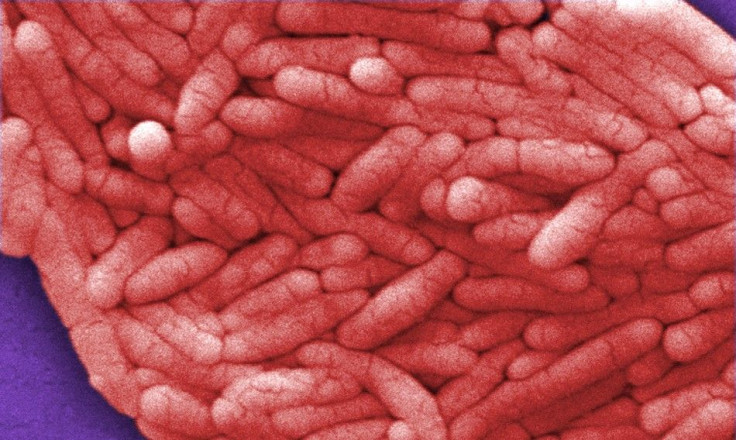Salmonella Recalls 2017: Smallbatch Pets' Chicken Blend For Dogs And Cats Taken Off Shelves

Smallbatch Pets Inc. recalled its frozen “Chicken Blend for Dogs and Cats” product after federal testing showed Salmonella that could cause risk to people and animals, according to the Food and Drug Administration (FDA) website. This recall was initiated after routine testing by FDA of a 2lb bag of chicken blend revealed the presence of Salmonella.
“Consumers who have purchased the above lots of Chicken Blend are urged to stop feeding them to their dogs or cats and return product to place of purchase for a full refund or dispose of them immediately,” the recall notice posted on the FDA website said. “This recall was initiated after routine testing by the Food and Drug Administration of a 2lb bag of chicken blend, that was collected at a distributor, revealed the presence of Salmonella."
“Salmonella can affect animals eating the products and there is risk to humans from handling contaminated pet products, especially if they have not thoroughly washed their hands after having contact with the products or any surfaces exposed to these products,” the notice added.
Read: Frito-Lay, Hunt’s And More Pull Product Over Past Year
The recalled “Chicken Blend for Dogs and Cats” can be identified by the following label information:
- Lot D032 with the UPC number 705105970974 and Best By Date 2/1/2018
- Lot E058 with the UPC number 705105970974 and Best By Date 2/27/2018.
What is Salmonellosis?
Salmonellosis is the food poisoning caused by the Salmonella enterica bacterium, which is mostly caused by eating food contaminated with salmonella. Salmonellaserotype Typhimurium and Salmonella serotype Enteritidis are the most common types in the U.S. Salmonellosis is more common in the summer than in the winter. Beef, poultry, milk, and eggs are most often infected with salmonella.
Symptoms:
Symptoms of infection in people include nausea, vomiting, diarrhea or bloody diarrhea, abdominal cramping and fever. Salmonella can result in more serious ailments, including arterial infections, endocarditis, arthritis, muscle pain, eye irritation and urinary tract problems.
Pets with Salmonella infections may be lethargic and have diarrhea or bloody diarrhea, fever and vomiting. Some pets could also have decreased appetite, fever and abdominal pain. Infected but otherwise healthy pets can be carriers and infect other animals or humans.
The FDA said in its notice that those who handled the recalled pet food and developed symptoms of Salmonella infection should seek medical attention while pets who consumed the product must be taken to the veterinarian for checkup.
Below are some quick tips from Centers for Disease Control and Prevention to prevent Salmonella:
- Cook poultry, ground beef, and eggs thoroughly and do not consume food containing raw eggs, or raw (unpasteurized) milk.
- If you are served undercooked meat, poultry or eggs in a restaurant, don't hesitate to send it back to the kitchen for further cooking.
- Wash hands, kitchen work surfaces, and utensils with soap and water immediately after contact with raw meat or poultry.
- Be careful with foods prepared for infants and the elderly
- Wash hands with soap after handling reptiles, birds, or baby chicks, and after contact with pet feces.
- Don't work with raw poultry or meat, and an infant (e.g., feed, change diaper) at the same time.
© Copyright IBTimes 2025. All rights reserved.





















